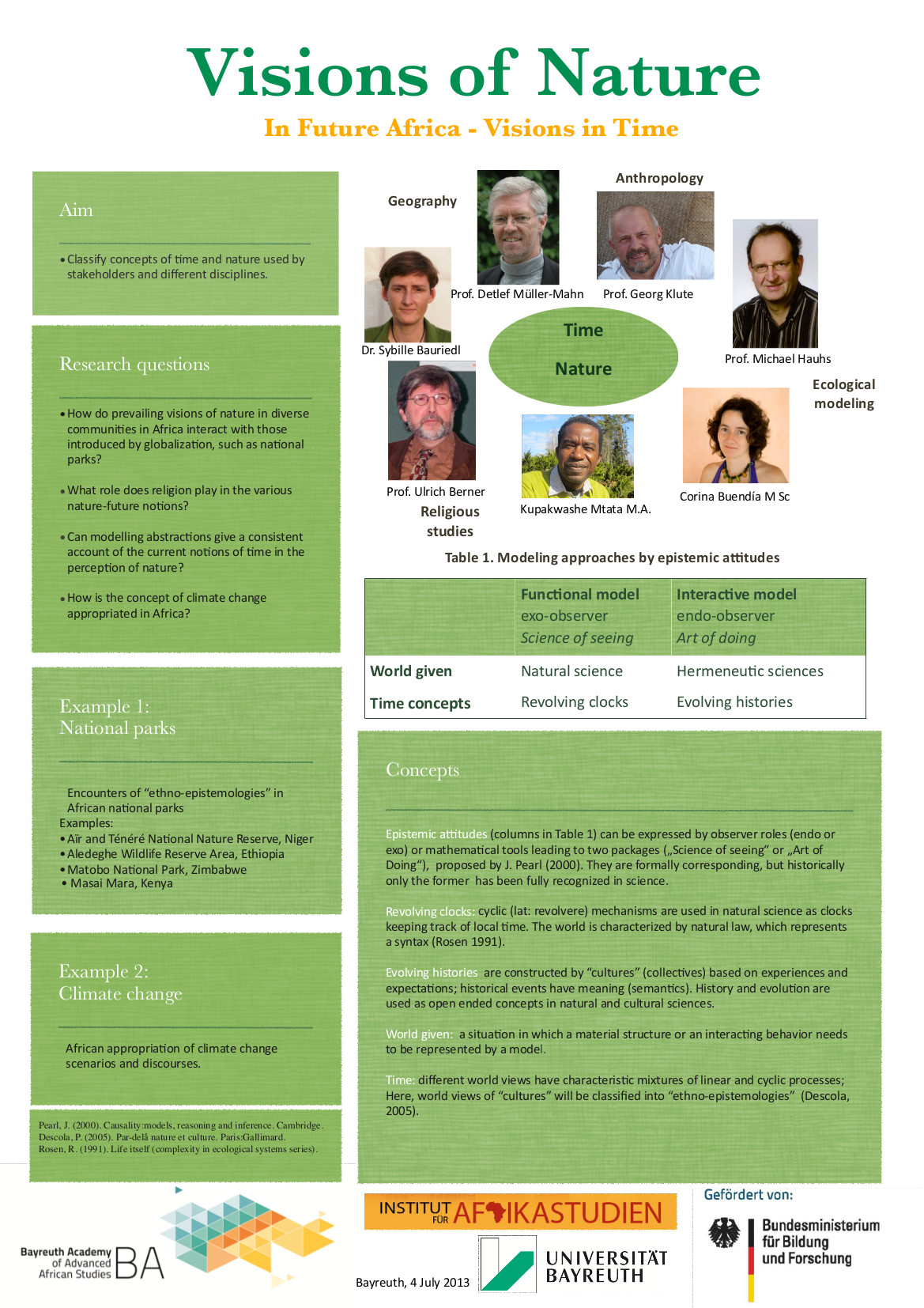 |
| Download the poster here. |
The notion of Time is used at the Bayreuth Academy as the central concept that cuts across the disciplines involved. This is a novel and challenging approach, in particular when dealing with the traditional objects of natural sciences.
In the sciences of nature space has been traditionally in the role which is taken by time in the Bayreuth Academy approach: Nature and culture have been widely used as central categories for organizing research on Africa. We are, however, skeptical about the appropriateness of this distinction. The nature-culture distinction as criticized by (Descola, 2005) is traditionally used as a spatial delineation: culture on one side, nature on the other. Hence management issues predominantly deal with mutual dependencies in space. In order to preserve nature, for example, a national park is separated from the realm of human culture. Here, we are concerned with temporal relationships between humans and their (natural) environments. Nature is conceptualized as an interface at which some events can be actively repeated (e.g. as sustainable utilization), or they appear as series of unique historical events. We study how different stakeholders in fields like national parks or climate change conceptualize their respective notions of ‘nature’ as historical narratives relative to their own competences of participating in this history. Methodologically, we look at the roles of models in the various case studies and disciplines. More
|




